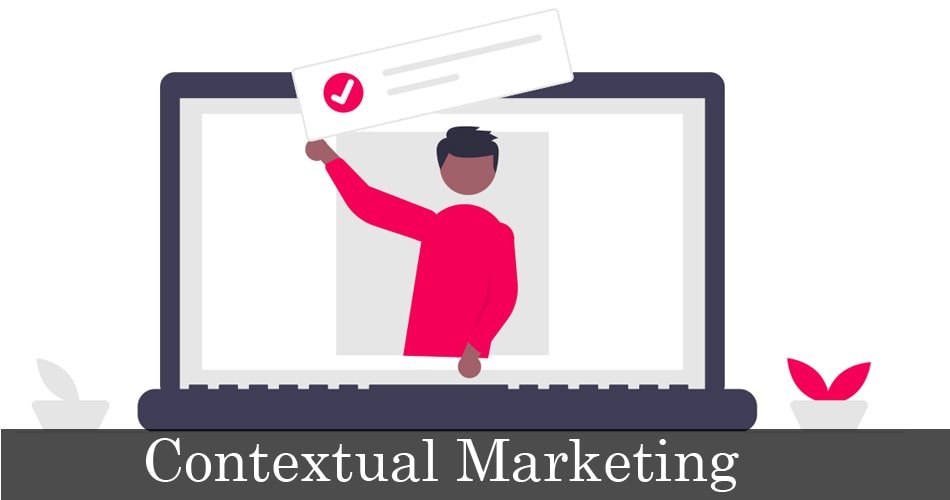Contextual Marketing

The future of marketing is personal. It starts with context.
In today’s fast-paced digital world, consumers are bombarded with countless advertisements daily. Amidst this noise, contextual marketing stands out as a beacon of relevance. By delivering tailored messages based on a user’s current context—such as location, interests, and online behavior—brands can create meaningful connections. Imagine receiving a special offer for your favorite coffee shop just as you walk by; that’s the magic of contextual marketing, turning ordinary moments into personalized experiences.
But why should marketers care? The answer lies in the growing demand for authenticity and relevance in advertising. Consumers are more likely to engage with brands that understand their needs and preferences. Contextual marketing not only enhances user experience but also boosts conversion rates. It’s built on trust; customers share valuable data to receive quality and reliable services.
Marketers must protect this trust by safeguarding customer data and ensuring their actions align with the 4Rs of contextual marketing:
Relevant: Address your audience in the context they live in. Providing relevant information improves your brand value and increases revenue. Avoid bombarding customers with irrelevant messages.
Response: Timing is crucial. Always ask permission before sending marketing information and choose the right moment to engage customers so they don’t feel overwhelmed.
Responsible: Protect customer privacy. Avoid unnecessary intrusions and handle data ethically.
Results: Focus on long-term relationships by offering genuine value rather than short-term profits.
Advantages of Contextual Marketing
Targeted Traffic: Ads reach only potential target audiences, increasing the effectiveness of campaigns.
Measurable Performance: Platforms like Instagram, YouTube, and Facebook provide detailed ad performance metrics, allowing for easy adjustments and improvements.
Cost-Effective: Requires less manpower compared to traditional methods, as data-driven strategies streamline the process.
Improved Customer Satisfaction: Personalized messages sent at the right time enhance customer experience.
Non-Disruptive: Unlike traditional ads, contextual marketing seamlessly integrates into the user’s daily life, providing solutions rather than interruptions.
Disadvantages of Contextual Marketing
Not Suitable for All: Ineffective for new or innovative products that customers aren’t familiar with.
Potentially Expensive: High-priced keywords can drive up costs, so careful selection is essential.
Requires Expertise: Successful campaigns need skilled professionals or agencies, which can be challenging for small businesses.
Providing a Personalized Experience
Digital customization and personalization are now easier with technology. Three levels of custom-made marketing are possible:
Informational Marketing: Providing the right offers, messages, and promotions.
Interactive Marketing: Creating two-way communication channels with customers.
Immersive Marketing: Offering sensory experiences through augmented reality and other technologies.
Personal Information and Customized Interaction
Location-based marketing, like geofencing, uses geolocation data to target specific areas, creating a dialogue with customers and guiding them through their journey. Gamification principles can also enhance engagement, as seen with apps like Shopkick, which rewards customers for various in-store activities.
Total Immersion
Technologies like augmented reality and sensors blur the lines between digital and physical experiences, creating a seamless customer journey. For instance, Lowe’s mobile app helps shoppers navigate stores efficiently with augmented reality paths.
To establish effective AI-powered contextual advertising, a connected ecosystem of sensors and devices is crucial. Once the infrastructure is in place, marketers can provide personalized experiences effortlessly.
Conclusion
Contextual marketing is a powerful tool in the digital age, offering personalized, relevant, and timely interactions that build trust and enhance customer satisfaction. By focusing on long-term relationships and leveraging technology, brands can create meaningful connections that drive success in a crowded advertising market place.
Frequently Asked Questions
Contextual marketing is a tactic for showing advertising to users based on their current online behavior or searched keywords. It works on websites and other media, including content in mobile browsers.
Contextual advertising analyzes content such as text, speech, pictures, and geolocation in real-time using AI and deep-learning algorithms. It employs behavioral targeting to deliver relevant or contextual adverts to people of the target audience based on their preferences.
Targeted advertising is a type of online advertising that focuses on a customer’s unique characteristics, interests, and preferences. Companies employ targeted advertising to ensure that their advertisements are seen by the right people. Advertising specialists gather data on consumer surfing habits, profiles created on company websites, shopping habits, and other demographic data.
These days, data is a company’s most valuable asset. Online data is used to make major commercial decisions. As a result, companies spend a lot of money collecting user data. Many Internet users believe that targeted advertisements violate their privacy.